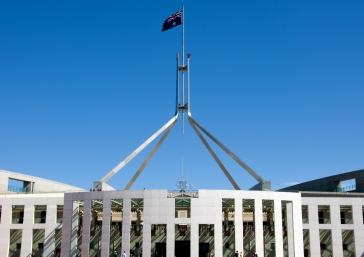Senates and sensibility: how best to reflect the people's will?
The electoral system is not reflective of the will of the people, but there are three potential reforms, writes Fergal Davis.
The electoral system is not reflective of the will of the people, but there are three potential reforms, writes Fergal Davis.

OPINION: It looks like Australia has elected senators for the Australian Sports party and the Australian Motoring Enthusiasts party for the first time. In a country of sports mad V8 lovers this is a historic moment. However, instead of celebrating, many are accusing the Senate electoral system of distorting Australian democracy.
The central claim is that the opaque preferencing system means that voters cannot readily identify the implications of casting their vote in a particular way. Since 1984 it has been possible for voters to vote above the line. This allows them to indicate the party of their choice and accept the “ticket” of preferences allocated by that party. This system saves individually numbering up to 110 candidates “below the line”. Above the line voting was introduced to reduce the level of “informal voting” (that is the number of spoiled ballots).
An unintended consequence of above the line voting is that parties engage in preferencing deals: which makes vote harvesting possible. Senator Nick Xenophon has criticised this system because a person who gets 80% of the quota can end up being pipped to the post by a candidate who received just 0.2% of the quota on first preferences. No doubt Senator Xenophon regrets his first election to the South Australia Legislative Council in 1997. On that occasion he turned 2.9% of the first preference vote into a seat in the State’s upper house.
That said, there is a real problem with preferencing deals: when voters tick a party above the line it is virtually impossible to know where those preferences will ultimately end up. The electoral system is not reflective of the will of the people.
There are three potential reforms.
A fixed quota system, favoured by the likes of my colleague Prof George Williams, would exclude those parties who do not attract sufficient first preference votes. Such candidates would be automatically eliminated and would have their preferences distributed between the remaining candidates.
The quota system would have excluded the Australian Motoring Enthusiasts party but it would also have thwarted Xenophon’s election to the upper house in 1997.
An alternative is to limit the number of compulsory preferences below the line to the number of vacancies being filled. This would encourage below the line voting which would limit the power of the parties to control the flow of preferences. This approach is employed in elections to the Victorian Legislative Council and has the support of the ABCs Antony Green.
A potential problem with this proposal is that there is an unusually strong attachment to the idea of every vote counting in Australia. Non-compulsory preferencing could allow a vote to exhaust. If someone casts six preferences and none of those candidates get up then the vote withers. Does votes not counting seem un-Australian?
A further proposal for reform is to allow above the line preferencing. This approach is used in New South Wales Legislative Council elections. This gives voters the choice of preferencing parties (above the line), rather than candidates (below). Above the line preferencing would either require voters to number up to 45 parties; or, if non-compulsory preferences were adopted, we would again have the potential for exhausted votes.
Finally, there is abolition. Queensland abolished its upper house in 1922; New Zealand followed suit in 1951; Ireland is holding a referendum on abolition of its Seanad; and even Canada is exploring the possibility.
But abolition is not realistic. Firstly, the constitution would need to be amended. It is hard to imagine any party expending time and effort on such a referendum – even if scrapping a gaggle of Canberra pollies would give the electorate a perverse pleasure. Secondly, no matter what Canadian prime minister Stephen Harper thinks, abolition is a terrible idea. It is debatable whether unicameralism can work in a small unitary country like New Zealand, but in a large federal country like Australia having adequate state and territory representation is vital.
The success of micro-parties will persuade many of the need to act. But whichever reform is ultimately adopted, it should not be about excluding sports fans and petrol heads from the federal parliament. It must be about better reflecting the will of the people.
Fergal Davis is a Senior Lecturer in the Faculty of Law, UNSW.
This opinion piece was first published in The Guardian.